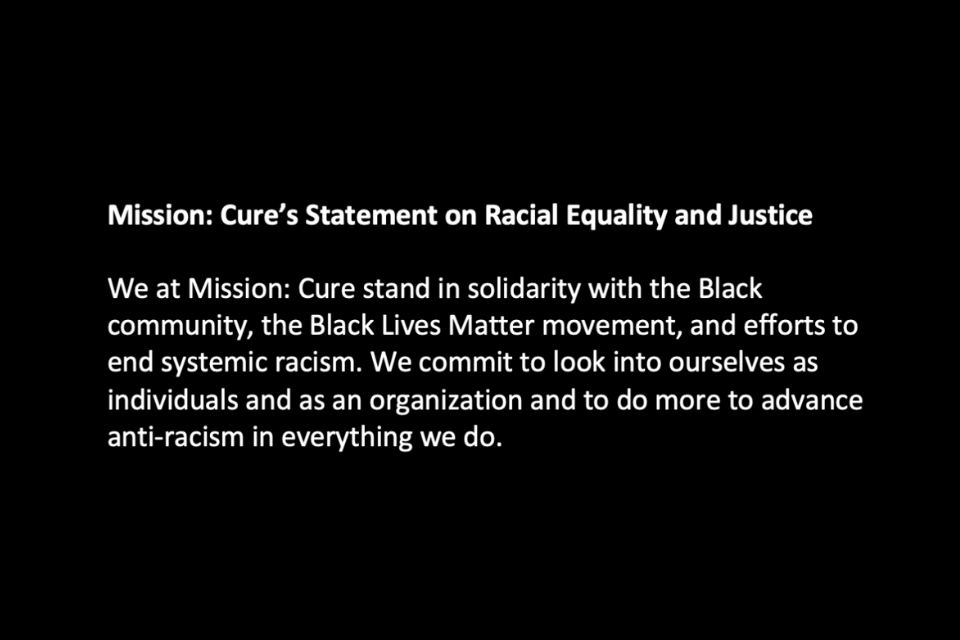We at Mission: Cure are shocked and outraged by the circumstances surrounding the deaths of George Floyd, Breonna Taylor, Tony McDade, Sandra Bland, Ahmaud Arbery and countless other victims of anti-Black violence. We stand in solidarity with the Black community, the Black Lives Matter movement, and efforts to end systemic racism. We commit to addressing racial inequality whenever and wherever we encounter it. However, as white female leaders, we acknowledge the limits of our own life experiences and therefore, will seek out and listen to those who face systemic injustice on so many levels. We commit to look into ourselves as individuals and as an organization and to do more to advance anti-racism in everything we do.
Taking on tough challenges is part of Mission: Cure’s DNA as it was founded to change how all disease is cured, starting with chronic pancreatitis. Our mission is to ensure that all people afflicted with debilitating and untreatable diseases can count on life-saving treatments. Clearly though, this vision cannot become reality without confronting and addressing the systemic racism that routinely restricts Black, Indigenous and people of color’s access to diagnosis, treatment, cures, advocacy and support. These barriers impede participation in clinical research and Black rare disease patients are under-represented in the fight to improve patient outcomes. Mission: Cure’s quest to find a cure for chronic pancreatitis is far from over and we are committed to making sure no one is left behind. We must, and will, step up to do more as determined agents of change.
At a minimum, we commit to the following concrete steps to advance anti-racism in our organization and our work:
- Expand our pancreatitis patient engagement efforts with a focus on expanding our reach within the Black, indigenous and people of color pancreatitis patient communities to understand and document their specific needs and priorities.
- Ensure that studies supported by Mission: Cure will actively include and address the disproportionate burden of chronic pancreatitis in the Black and Brown communities.
- Amplify the voices of Black, indigenous and people of color communities, including patients, clinicians, researchers and entrepreneurs in our work.
- Develop a working group to brainstorm on lessons learned from COVID-19, including significantly worse outcomes for Black and Brown communities and the need for systemic healthcare reform to improve access to care and better care coordination.
In solidarity,
Linda Martin and Megan Golden, Co-Directors
